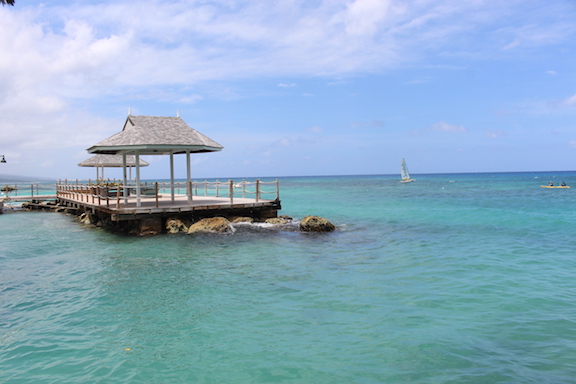By David P Rowe
Op-Ed Contributor
During the recent Greek debt crisis, commentators have been referring to Jamaica as an example of another country with a huge debt burden.
This is true — Jamaica’s gross public debt hovers higher than 120% of GDP, one of the highest rates of any country in the world.
That means the country’s interest payments are now about 70% of government spending which means that for every dollar Jamaica earns they must pay $0.70 to the debtor before it can spend any money on its own.
The result of this fiscal conundrum is that Jamaica is unable to spend money on its social programs.
In February of 2010 the government of Jamaica agreed with its national creditors on the Jamaica Debt Exchange which restructured Jamaica’s debt under the endorsement of the IMF. The restructuring extended the maturity of the debt by lowering interest rates by about 3 percent. This 3 percent reduction was merely a soft cerberus as Jamaica ended having to refinance 46% of the debt.
Despite the pain associated with having to undertake serious economic reforms Jamaica has stayed the course.
“Structural adjustment policies” from the IMF have included major trade liberalization, privatization. The big casualties were the livestock industry, the farming sector, construction and small business. Jamaica has largely been able to avoid social unrest.
That’s in large part due to the impact of tourism, which has been Jamaica’s saving grace.
Without it Jamaica would be an economic catastrophe.
Travel and tourism generated $4 billion of Jamaica’s GDP as recently as 2013.
Tourism is by far the largest of Jamaica’s financial sectors, larger than banking, communication services and mining.
The Jamaican tourist sector is responsible for nearly 300,000 Jamaican jobs, nearly 3 times as many jobs as the financial sector generates.
And much of the country’s tourism success must be attributed to the efforts of Jamaica-based Sandals Resorts International, the significant player in Jamaican and regional tourism.
The group has a very strong brand orientation and has been remarkably successful in building a strong product and marketing itself to sustain its revenue in Jamaica and across the Caribbean.
The dynamic father-son combination of Butch and Adam Stewart have fought to keep Jamaica from the brink of crisis and the country owes them its financial stability.
Sandals has thrived from year to year through independent efforts and the patriotism of its owners — an effort and patriotism which will now need to be embraced by other Jamaicans in the private sector as the chasm of public debt with an intrepid approach.
While no industry is perfect, Jamaica needs to acknowledge the overwhelming contribution of tourism — both in the past and going forward for its economic future.
David P Rowe is an attorney in Florida and Jamaica and an adjunct professor of law at the University of Miami School of Law.
Note: the opinions expressed in Caribbean Journal op-eds are those of the author and do not necessarily reflect the views of the Caribbean Journal.
